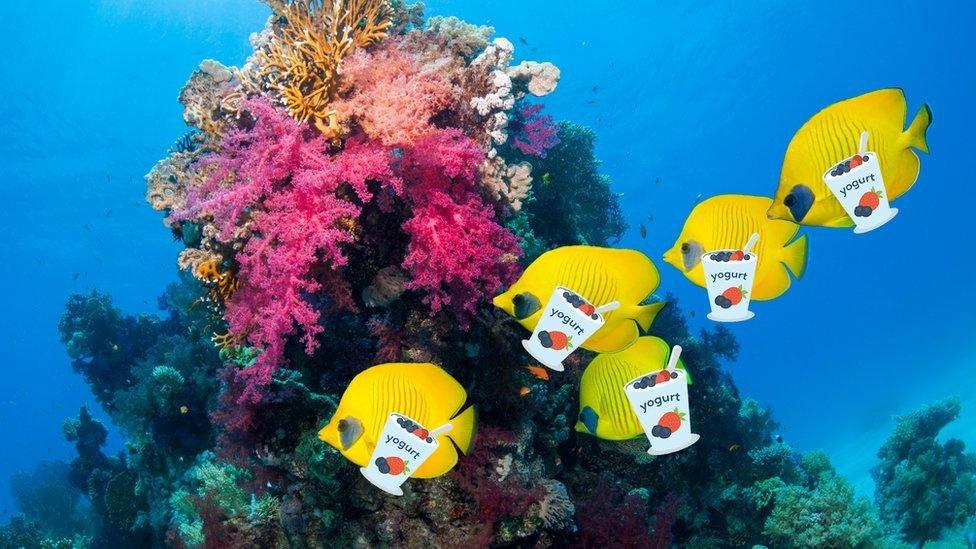Climate change: Can yoghurt probiotics heal coral reefs?
- Published
- comments

Rising ocean temperatures are having a negative impact on coral reefs so how can probiotics, found in yoghurt, help?
Can yoghurt help treat coral reefs from damage caused by climate change?
Probiotics are good bacteria that exist in live yogurt and in our own bodies, and now a group of international scientists have tested their effects on coral reefs damaged by coral bleaching.
The team found that all coral treated with probiotics recovered compared to just 60% of coral that didn't receive the probiotic treatment.
The report, published in the Science Advances journal, suggests this method could be used to help fight the impact of global warming on coral reefs but more work needs to be done.
Coral bleaching is a stress response when the sea becomes too cold or hot or when pollution or freshwater enters the sea.
The relationship between the coral and the algae within it breaks down and the coral pushes out the algae. Without the algae, the coral loses it major source of food and turns white.
If corals remain bleached for too long then they can die.
Coral bleaching is caused by oceans getting warmer, as greenhouse gas emissions continue to raise global temperatures
How did scientists test probiotics on the coral?
Scientists took 80 samples of the coral species Mussismilia hispida from the Atlantic Ocean, near Brazil.
Back at the lab, they raised the coral's water temperature from 26C to 30C over eight days.
They kept the temperature at 30C for ten days before dropping down to 26C once more - this caused the corals to experience coral bleaching.
Scientists treated one group with probiotics and the other group received none. They monitored and then compared the two groups.
Probiotics help to keep us healthy and a group of scientists now believe they can help the healing process of coral reefs affected by coral bleaching
100% of the group that received probiotics healed and survived, compared to 60% of the group that did not receive any probiotics.
This shows to scientists that there may be methods that are able to help fight the impact of global warming on coral reefs - though this will not stop the effects of global warming alone.
The study's lead author, Erika Santoro, explained that while probiotics can be an effective tool in helping coral reefs heal, other action is needed, such as "protection and conservation, everyone being more aware and, most importantly, decreasing greenhouse gas emissions".
- Published20 January 2020
- Published13 August 2021
- Published12 August 2021
